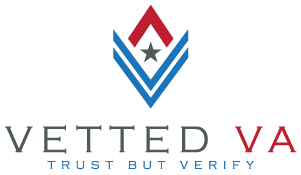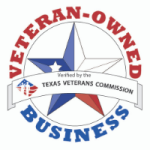The COVID-19 pandemic created financial challenges for millions of Americans — and veterans were no exception. As businesses shut down, many homeowners turned to mortgage forbearance under the CARES Act to pause payments and stabilize their finances.
For veterans with VA-backed home loans, this raised a new question: Can I still refinance after forbearance?
The answer arrived on June 30, 2020, when the U.S. Department of Veterans Affairs (VA) released Circular 26-20-25, establishing clear guidelines for veterans seeking a VA Interest Rate Reduction Refinance Loan (IRRRL) after forbearance.
Here’s what that means for you.
Understanding VA Relief During the CARES Act
The CARES Act (Public Law 116-136, Section 4022) granted borrowers with federally backed mortgages the right to request up to 180 days of forbearance, with the option to extend another 180 days.
That includes loans backed by Fannie Mae, Freddie Mac, FHA, USDA, and the VA.
Under this law, borrowers only needed to:
-
Contact their loan servicer and request forbearance.
-
Affirm financial hardship caused by COVID-19.
No proof or documentation was required — a policy designed to get relief to homeowners fast.
While that helped prevent foreclosures, it also created uncertainty for veterans wanting to refinance under the VA IRRRL program — especially those who paused payments.
What Is the VA IRRRL and Why It Matters Now
A VA Interest Rate Reduction Refinance Loan (IRRRL) — sometimes called a VA streamline refinance — allows eligible veterans to refinance their existing VA loan into a new one with a lower interest rate or shorter term, often with no appraisal or income verification.
It’s one of the most valuable tools for reducing monthly payments and locking in long-term stability.
Normally, if a borrower was more than 30 days late, the lender needed VA’s prior approval before closing an IRRRL. But during COVID-19, that became a barrier for veterans emerging from forbearance.
The June 30, 2020 VA Guidance Explained
To address that issue, the VA issued Circular 26-20-25, effective immediately, outlining temporary policies to help veterans refinance after forbearance.
The Circular remained active until July 1, 2021, and it gave lenders additional flexibility when working with veterans affected by COVID-19 hardships.
The core message: If you’ve resolved your financial hardship and meet VA guidelines, you can still qualify for an IRRRL — even after forbearance.
Key Flexibilities for Borrowers Coming Out of Forbearance
Waiver of Prior Approval for Late Payments
Normally, if a VA loan being refinanced was more than 30 days past due, the lender had to obtain VA’s prior approval.
Under this temporary guidance, VA waived that requirement if:
-
The lender is authorized for automatic closings,
-
The forbearance was initiated under the CARES Act,
-
The borrower can demonstrate that the hardship has been resolved, and
-
The borrower meets all other IRRRL underwriting standards.
This allowed lenders to move forward without unnecessary delays — a huge win for veterans ready to refinance after hardship.
Including Skipped Payments in the New IRRRL Loan
Another key flexibility: borrowers could roll past-due forbearance payments into their new loan balance.
That means if you missed payments during forbearance, your lender could include them in the total IRRRL amount — along with:
-
Late charges (if applicable under your note and the CARES Act),
-
Energy efficiency improvements,
-
Allowable closing costs or discount points, and
-
The VA funding fee.
This made refinancing smoother and more accessible than conventional refinance programs, which typically require three consecutive on-time payments after forbearance.
The Seasoning Rule and How Forbearance Affects It
The VA enforces “seasoning” rules to protect veterans from loan churning — repeated refinancing for profit.
To qualify for a new IRRRL:
-
At least 210 days must have passed since the first payment due date of your current VA loan, and
-
You must have made six consecutive on-time payments.
How Forbearance Interrupts Seasoning
-
If you made six or more payments before entering forbearance, your seasoning requirement is already satisfied.
-
If you made fewer than six payments, your seasoning clock pauses during forbearance. You’ll need six consecutive on-time payments after resuming.
This ensures that borrowers are stable and that refinances remain in their best financial interest.
Appraisal and Fee Waiver Considerations
For most IRRRLs, no appraisal is required — unless your lender needs to verify a net tangible benefit (for example, lowering your rate, term, or payment).
The VA also encouraged lenders to waive origination fees, discount points, and other costs for borrowers affected by COVID-19. Many VA-participating lenders voluntarily adopted these waivers to support veterans.
“The VA strongly supports fee waivers and encourages lenders to act in the best interest of the Veteran,” the Circular states.
What to Expect When Applying for an IRRRL Post-Forbearance
If you’re ready to refinance after forbearance:
-
Confirm your loan status – Ensure your forbearance has ended and any skipped payments have been resolved.
-
Demonstrate financial recovery – Be prepared to show income stability and proof that hardship has ended.
-
Work with an experienced VA lender – Choose one familiar with Circular 26-20-25 and manual underwriting, if needed.
-
Request fee transparency – Ask if your lender offers reduced or waived fees for COVID-affected veterans.
Final Takeaways for Veterans
The VA’s 2020 guidance on IRRRLs after forbearance showed a commitment to flexibility and fairness.
“I think the VA covered all the bases here,” Schang concluded. “If you’ve regained financial stability, you can access your full VA refinance benefit.”
Just remember:
-
Forbearance months don’t count toward seasoning.
-
You can roll missed payments into the new loan.
-
Always work with a VA-experienced lender who understands the nuances of these temporary rules.
When in doubt, connect with a Vetted VA professional — they’ll help ensure you get the right loan, for the right reasons, at the right time.




